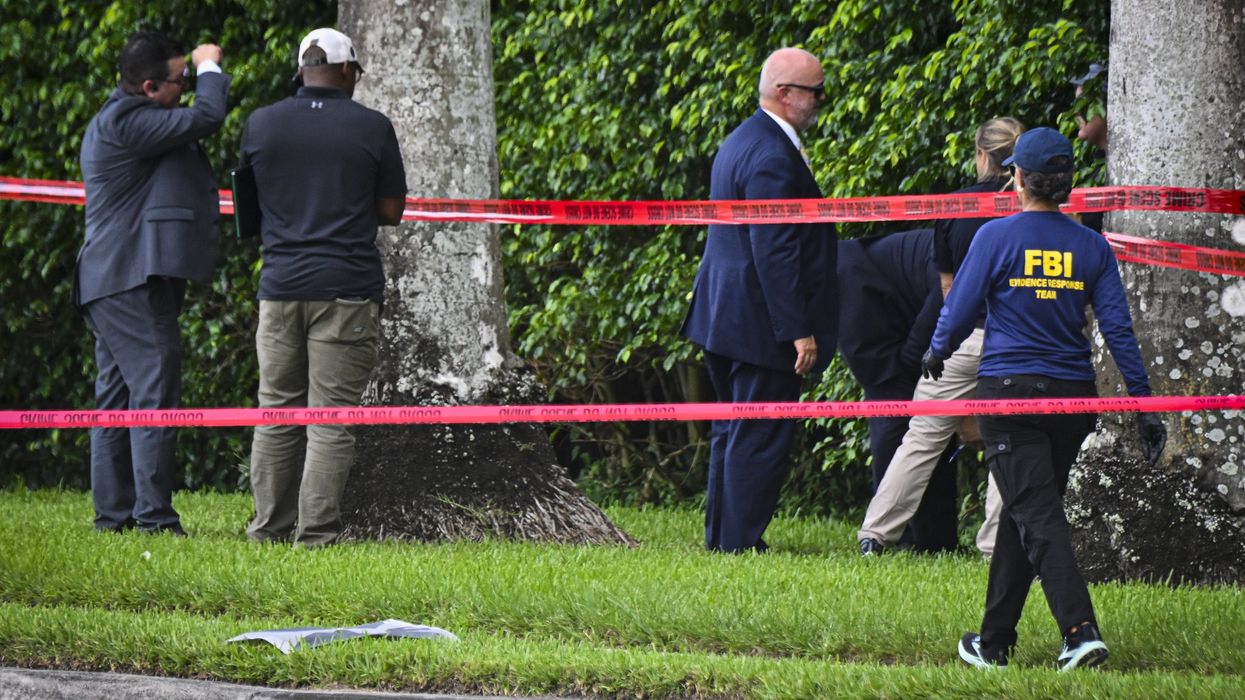Jonah Goldberg is editor-in-chief of The Dispatch and the host of The Remnant podcast. His Twitter handle is @JonahDispatch.
Another unwell person sought to kill Donald Trump, according to the FBI and other officials. We should all be grateful that no one was hurt, and that the Secret Service and local law enforcement appear to have done their jobs properly.
I’m also grateful to former President Trump for assigning blame for the foiled assassination attempt to Democratic rhetoric, specifically that of “Biden and Harris.” Last week, he told Fox News Digital, “Their rhetoric is causing me to be shot at, when I am the one who is going to save the country, and they are the ones that are destroying the country — both from the inside and out.”
Why am I grateful to Trump? For starters, because he saved me an enormous amount of time. I planned to address this claim using examples from Trump boosters. "Dems Still in ‘Stop Hitler’ Incitement Mode" read one headline at Breitbart.com before it got muted. But collecting such quotes — often from second- or third-rate MAGA sycophants and apologists — is tedious and it requires arguing with people I’d rather not elevate by taking seriously.
But here we have the claim stated concisely by the presidential candidate — and target — himself. Even better, it contains the fundamental cynicism and hypocrisy of much lengthier versions of this talking point.
Trump believes that the “threat to democracy” charge against him is inciting people to violence. This could be possible, though there is little evidence that the would-be assassin in Butler, Pennsylvania, in July was motivated by politics; the latest assailant, a one-time Trump supporter turned critic, certainly seems to have been very political, whatever his specific motivation.
Still, in a country of 337 million people, it’s always going to be the case that some tiny fraction of unwell people will be motivated to violence by “extreme” claims.
And here’s the problem with the argument as it’s made by Trump and his defenders. They are not against allegedly violence-inciting, rhetorical extremism, they’re against such rhetoric deployed against Trump. Similar rhetoric targeting Biden and Harris is just fine.
Go back and look at Trump’s complaint. “They are the ones that are destroying the country,” he insists. Later he adds, “It is called the enemy from within. They are the real threat.”
In other words, Trump believes the problem isn’t apocalyptic rhetoric that incites violence. No, the problem is that people believe the rhetoric about him, when they should believe his similar rhetoric about his political opponents. Indeed, Trump routinely insists that if Harris — whom he calls a communist and fascist — is elected “the country will be over.”
Few of the people, including Trump himself, who will blame “hateful rhetoric constantly aimed at Trump,” in the words of the New York Post’s Miranda Devine, for Sunday’s assassination attempt, have any problem with Trump’s hateful rhetoric. It’s a remarkable double standard. We can wax Jesuitical about the differences between saying Harris will “destroy” the country and saying that Trump is a “threat to democracy.” But logically and empirically, the differences between the claims are nugatory.
There is an objective divergence, however. People — including some unhinged ones — find the charges against Trump plausible. That might have more to do with Trump’s past behavior ( say, on Jan. 6) or his stated positions (his call to terminate the Constitution so he can retake power, perhaps) than with the persuasiveness of his critics or the power of the media.
Indeed, whether the claim that Trump is a threat to democracy is extreme depends largely on whether it is true. If he is a threat to democracy, then calling him one is merely an accurate description. It’s irresponsible — or “extreme” in the colloquial argot of politics these days — to falsely shout, “Fire!” in a crowded theater. If you actually see a fire, it’s a defensible warning.
This assassination attempt came amid a broiling controversy over baseless claims by Trump and JD Vance about Haitian immigrants feasting on pet cats and dogs in Springfield, Ohio. These claims resulted in school closures over bomb threats and shooting threats against Haitians in Springfield. Bear in mind that Trump routinely refers to migrants as blood-poisoning vermin. And yet, complaints and concerns from the hand-wringers about that kind of rhetoric have not been forthcoming.
It’s worth recalling that conservatives used to denounce efforts to blame politicians for the actions of madmen. When then-Democratic Rep. Gabby Giffords was shot in Arizona in 2011, many liberals ludicrously insisted that Sarah Palin was to blame, and conservatives rightly objected. Now, many conservatives sound like those liberals, only in defense of Donald Trump.
If hypocrisy was helium, many people would have funny voices, and some would just float away.
©2024 Tribune Content Agency, LLC.




















 From left to right: Gabriel Cardona-Fox, Bud Branch, Joe Concienne
From left to right: Gabriel Cardona-Fox, Bud Branch, Joe Concienne 